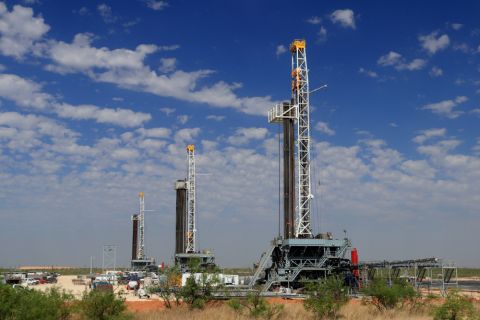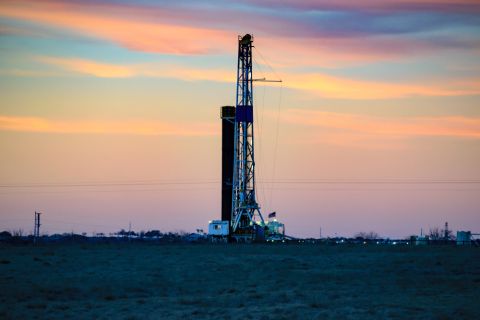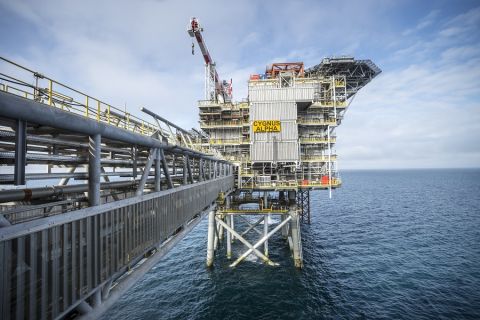NEW YORK—Companies that transport oil by rail are prepping for a business surge after a federal judge ordered the largest crude pipeline out of North Dakota to shut within a month, market sources said on July 6.
Shipping by rail will be among the few options left for oil producers in the second-largest oil producing U.S. state, providing a boon for transport firms forced to furlough workers during the coronavirus-triggered economic downturn.
A U.S. district court ordered pipeline operator Energy Transfer to shut the 557,000 barrel-per-day (bbl/d) Dakota Access pipeline (DAPL) and empty the line pending an environmental review that would keep it shut for at least a year.
“I think everybody is forming their game plan now, and if they have tank cars, they’re probably thanking their lucky stars,” said one source familiar with Bakken rail operations.
The line runs from North Dakota’s Bakken shale basin to Patoka, Ill. Bakken crude shippers have been exploring crude-by-rail options on July 6, but it is too early to say how much the closure will affect the rail business, the source said.
There are enough tank rail cars to compensate for DAPL’s lost capacity, two sources with knowledge of the matter said, but staffing may be a challenge initially.
“The assets are available but the staffing is not in place to ramp up quickly in my opinion,” said Elliot Apland, managing member at MarbleRock Advisors which helps negotiate rail supply chain contracts.
“Also, if railroads do decide to call back furloughed employees or hire new employees, they are going to have to be certain the assumed shutdown period will last at least a year and justify the staffing increase,” he said.
Less crude is available to transport from the region than a few months ago after many producers cut output due to the demand slump caused by coronavirus lockdowns.
Production in North Dakota has fallen roughly a third from a peak of more than 1.4 MMbbl/d.
“There is ample rail capacity and therefore crude oil will still find its way out of the basin, albeit at a higher cost if this ruling stands,” Nicholas O’Grady, CEO of Bakken-focused producer Northern Oil and Gas Inc., said in an interview.
The pipeline closure could prevent companies from boosting output when demand recovers, and will add costs as rail transport is typically more expensive.
“Production will need to be 950,000 bbl/d or lower or barrels won’t be able to clear for August,” one source at a Bakken producer said.
Bakken crude prices fell on July 6 to their deepest discount against benchmark crude futures since early May, traders said.
Smaller alternative pipelines out of the Bakken have limited spare capacity to compensate for DAPL’s closure, sources said. Kinder Morgan’s Double H pipeline and True Companies’ Belle Fourche pipeline may have some capacity, sources said.
At full capacity, DAPL carries the equivalent of seven to eight trains per day, Apland said. Other regional pipelines could absorb about two to three trains’ worth, he added, leaving the rest for rail.
The closure could rejuvenate an oil transport industry that has declined since DAPL began operating in 2017.
“The Bakken was the original home to crude by rail,” said Rusty Braziel, CEO of Houston-based consultancy RBN Energy.
“If it turns out production comes back, and there are still a lot of crude by rail terminals in North Dakota, this is something that will motivate a lot more crude by rail shipments from that area than we’ve seen in a long time.”
Recommended Reading
Excelerate Energy, Qatar Sign 15-year LNG Agreement
2024-01-29 - Excelerate agreed to purchase up to 1 million tonnes per anumm of LNG in Bangladesh from QatarEnergy.
UK’s Union Jack Oil to Expand into the Permian
2024-01-29 - In addition to its three mineral royalty acquisitions in the Permian, Union Jack Oil is also looking to expand into Oklahoma via joint ventures with Reach Oil & Gas Inc.
Permian Resources Continues Buying Spree in New Mexico
2024-01-30 - Permian Resources acquired two properties in New Mexico for approximately $175 million.
Eni, Vår Energi Wrap Up Acquisition of Neptune Energy Assets
2024-01-31 - Neptune retains its German operations, Vår takes over the Norwegian portfolio and Eni scoops up the rest of the assets under the $4.9 billion deal.
NOG Closes Utica Shale, Delaware Basin Acquisitions
2024-02-05 - Northern Oil and Gas’ Utica deal marks the entry of the non-op E&P in the shale play while it’s Delaware Basin acquisition extends its footprint in the Permian.





